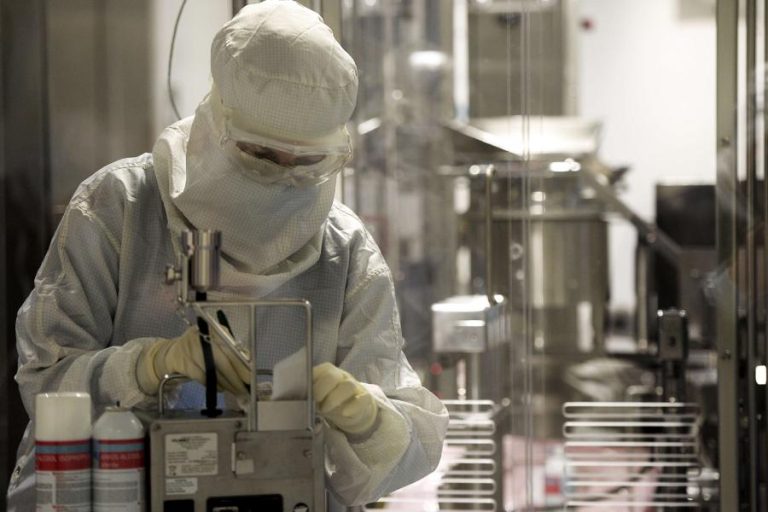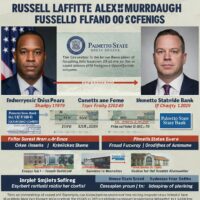Former Chemours Employee Charged With Conspiracy To Steal Trade Secrets In Connection With Plan To Sell Trade Secrets To Chinese Investors
Former Employee Intended To Infringe On Chemours’ Lucrative Sodium Cyanide Business
WILMINGTON, Del. – A federal grand jury in Wilmington has charged a former Chemours employee with conspiring to steal trade secrets and attempting to monetize them with Chinese investors, announced Acting U.S. Attorney David Weiss and Gordon B. Johnson, Special Agent in Charge of the FBI Baltimore Division.
According to the indictment, the conspiracy involved sodium cyanide, a chemical used in mining and for which Chemours is the world’s largest producer. Chemours, based in Wilmington, performs the research and development for sodium cyanide at the Experimental Station in Wilmington. Sodium cyanide is most often used to mine gold, silver, and other precious metals. Earlier this summer, Chemours broke ground on a $150 million sodium cyanide plant in Mexico.
The individual charged in the indictment is Jerry Jindong Xu, who moved from China to North America in 2011 while employed by DuPont, and became a Chemours employee when Chemours spun off of DuPont in 2015. Xu, terminated by Chemours in 2016, was a marketing professional specializing in sales of sodium cyanide. Xu was aided by an unnamed co-conspirator, who was also a longtime DuPont employee before leaving the company in 2014 to open a cyanide and mining consulting business.
According to the indictment, Xu completed several overt acts in furtherance of the conspiracy. His main objective was either to help investors build a competing sodium cyanide plant or become an import competitor in North America. Over the course of one year, all while employed at Chemours, he:
- Misled colleagues and fabricated assignments in order to accumulate vast amounts of pricing and other information, including obtaining passwords for spreadsheets.
- Contacted potential Chinese investors to solicit funding for building a sodium cyanide plant. They would communicate in English and Chinese, sometimes over an encrypted Chinese messaging service.
- Explained to one Chinese investor that he wanted to do this project “for himself and not to slave away at this only to benefit someone else”
- During a 2016 trip to China, accessed Chemours documents and told his co-conspirator he had “out-of-the-big (sic) ideas cooking” that he was anxious to discuss. He also asked how much their plant project would be worth. “Would you say in the millions?”
- Created a company, made his wife the director, and executed a non-disclosure agreement with his co-conspirator.
- Asked for and received a tour of Chemours’ sodium cyanide plant, during which he secretly took pictures of plant system diagrams and sent them to himself.
- In the week after he was notified of his termination, he copied and/or sent himself many Chemours confidential documents, and then falsely certified that he had returned all Chemours files.
Xu is charged with conspiracy to commit theft of trade secrets, in violation of 18 U.S.C. § 1832(a)(5). The maximum penalties he faces are 10 years imprisonment and a $250,000.00 fine. Xu was arrested in New York in August and arraigned in Wilmington on September 28, 2017.
Chemours was formed in July of 2015 after the DuPont Corporation separated its performance chemicals business line from its other business. Chemours is a publicly traded corporation with its corporate headquarters located in Wilmington, Delaware. It is the world’s largest sodium cyanide producer.
“We are committed to prosecuting anyone—be they rogue actors or foreign nations—who tries to line their pockets by jeopardizing the hard work our businesses perform every day,” said Acting U.S. Attorney Weiss. “This brazen conduct goes to the heart of intellectual property protection and our office will aggressively and diligently pursue anyone who breaks laws and threatens corporate innovation.”
FBI Special Agent-in-Charge Johnson said, “The FBI investigation and this indictment reveal a broken trust from a company employee who stole trade secrets in a structured, multi-faceted fashion,” said Special Agent in Charge Gordon B. Johnson of the FBI’s Baltimore Division. “The FBI will vigorously investigate cases whenever trade secrets are stolen or otherwise compromised. Private sector entities should be alert to protect trade secrets, and report indicia of their theft to the FBI.”
The case is being prosecuted by Assistant United States Attorneys Jamie McCall and Alexander Mackler. The investigation, which is ongoing, is being conducted by the FBI.















